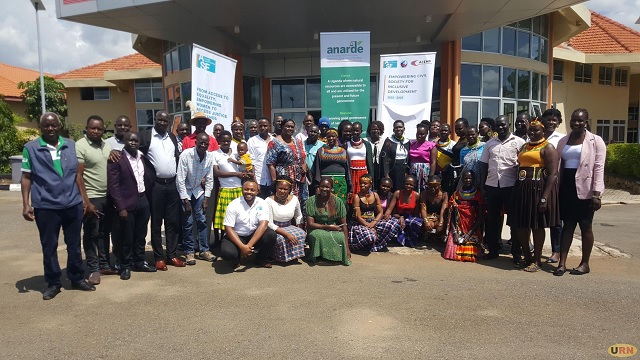
Moroto, Uganda | THE INDEPENDENT | Women and youth in the Karamoja sub-region have been urged to lead in the fight against climate change.
The National Development Plan III and Vision 2040 recognizes that climate change adaptation is vital to increasing household incomes and improving the equality of life of the population.
The region is facing severe drought that has led to soil depletion affecting food supply, rampant environmental degradation, and poor harvest.
Josephine Lomuria, the Gender Officer at ANARDE Organization said that women and the youth are encouraged to participate in the energy transition to adapt to the effects of climate change in Uganda.
ANARDE with support from CivFund is partnering with leaders in the Karamoja sub-region on gender inclusion and empowering women and youth in climate change adaptation in a just energy transition.
Lomuria said that to promote climate change adaptation, it is necessary to increase women’s participation in decision-making processes at all levels and allow them to contribute to evaluating needs and prioritizing climate activities.
She noted that this would also ensure that gender and climate change are mainstreamed in the national budget.
Lomuria noted that the population in Karamoja mainly relies on rain-fed agriculture and seasonal rivers as a source of water for their livelihoods. The traditional cooking methods that require firewood which is driving deforestation.
Jackson Angella, an elder in the Moroto district said that it is a great Initiative to involve women in the fight against climate change because they are drivers of all household activities.
He reiterated that there is a need to provide local measures for addressing the challenge of cooking to avoid the cutting down of trees.
He urged the government to consider sensitizing the communities to the danger of environmental changes.
Cosmas Ayepa, the Moroto District Secretary for social services noted that people have destroyed the trees and grass around Mt Moroto which could have helped to minimize the flash floods on the slopes of the mountain where the town is situated.
Ayepa noted that the involvement of the youth is key to environmental protection because they can be more active in the restoration of the ecosystems.
He also reiterated that it is high time schools should start teaching children about climate change and how to mitigate its effects.
Ayepa urged the communities to avoid cutting down the indigenous trees but instead preserve them.
Margret Lomonyang, the Moroto Assistant Resident District Commissioner urged communities to adopt modern technology to mitigate the effects.
Lomonyang noted that Gas energy cooking cannot work in the Karamoja sub-region but better to look out for improved charcoal stoves which are cost-effective. She added that most of the families are low income earners with limited energy connections and off grid system.
She noted that there is a need to lobby for resources for empowering women and youth on tree plantations.
Lomonyang said that the cultural norms have also helped to preserve some of the indigenous trees which helped to protect the environment.
She also noted that there is a need to strengthen the communities and sensitize them to learn better solutions to protect the environment.
She said that women need a lot of capacity-building training to understand the problem of climate change.
*******
URN
 The Independent Uganda: You get the Truth we Pay the Price
The Independent Uganda: You get the Truth we Pay the Price





